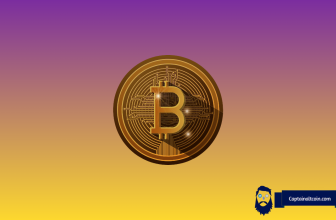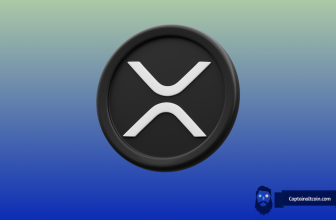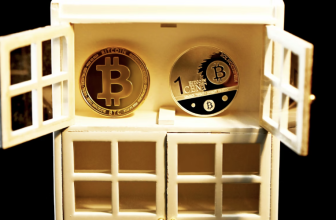
- Bitmain fires entire BCH-focused Copernicus team
A tweet made by a Chief Strategy Officer at Blockstream and former BTCC Chief Operational Officer Samson Mow suggests that Chinese Bitcoin mining giant Bitmain followed up on recent downsizing reports and laid off its entire Copernicus team, which was working on the development of Bitcoin Cash client.
The firing was apparently done in a candid, quiet way, with the now former employees given only a week notice to pack up their stuff and leave. This report comes on the shoulders of two previous Bitmain downsizing news stories; one suggested that the company closed a major research center in Israel while the other saw Dovey Wan – a crypto influencer and noted Bitcoin maximalist – relay information about Chinese LinkedIn posts confirming even more layoffs.
Sources suggest that Bitmain didn’t manage the recent crypto market downturn very well, mostly because they kept expanding their operations in a period where interest for crypto mining stagnated. Other projects like ConsenSys, Steemit and RChain have recently revealed they suffer from similar problems, and all of them blamed the waning prices of cryptocurrency for their predicaments.
- Bitcoin mining greener than gaming and many other industries, a study reveals
Recently we’ve heard many Bitcoin deniers criticize the cryptocurrency for its alleged energy wasting. From Guardian to New York Times, many news outlets belonging to the “old establishment” failed to realize why exactly Bitcoin uses as much energy as it does, why that energy usage is good and why it’s not even that wasteful when compared to some other large-scale industries. The issue was recently addressed by Coinshares, popular digital asset management and research platform, who pointed out some of the mainstream misconceptions about Bitcoin mining.
In a study presented in a whitepaper titled “The Bitcoin Mining Network: Trends, Composition, Marginal Creation Cost, Electricity Consumption & Sources”, members of Coinshares Research and Three Body Capital investigated geographical distribution, composition, efficiency, electricity consumption and electricity sources, trends in hash rate, hardware costs, hardware efficiency and marginal creation costs of the Bitcoin mining network.
The study goes on to explain that while Bitcoin mining certainly isn’t a low energy ordeal, it ultimately comes out much greener than almost every other large scale industry on the planet. It also found that most of the mining (77%) is done in areas with large, unused supplies of renewable energy, meaning that the practice isn’t as big of a waste as some news outlets claim it to be.
Among other things, the study compares and contrasts Bitcoin mining against gaming:
“While we find the notion of attacking a value-creating industry based on its consumption of electricity freely purchased by willing sellers in the open market rather absurd, if one nevertheless was to embark on such a spurious line of argumentation we humbly suggest efforts might be better directed towards other applications of electricity. For example, there are approximately 85m PlayStation4, 40m Xbox One and 15m Nintendo Wii U consoles distributed among global households. Their weighted average gameplay power draw is approximately 120W. Assuming they are played on a modern 40’’ LED TV drawing only 40W, for 4 hours a day, and idling for 20 hours a day, at a weighted average of 10W, these gaming systems alone draw more power (4.9GW) than the entire Bitcoin mining network (4.7GW).”
You can check out this interesting study in full here.
- Bitcoin Core 0.17.1 released
Bitcoin greeted its fans, holders and miners with some positive Christmas news as its Core software saw the 0.17.1 update released.
The software update has been teased for a while now and the release comes after extensive testing was conducted on multiple operating systems using the Linux kernel, macOS 10.10+, and Windows 7 and newer. Overall, 0.17.1 is a minor update, bringing mostly hotfixes, bug fixes and slight performance improvements to 0.17.0.
Most notably, changes have been made on the p2p protocol and network nodes, wallets, RPC and other API’s, GUI, build system, tests and QA and of course documentation. Nodes that are running the older version of the software will have to shut down completely before installing the update. You can check out the full release (as well as in-depth instructions how to install it) here.
- XRP Is More Decentralized Than Bitcoin And Ethereum, claims Brad Garlinghouse
Brad Garlinghouse, the CEO of San Francisco based startup Ripple, has focused a lot of his efforts in the past to defend the cryptocurrency his company made, XRP. Many critics pointed out in the past that XRP is a heavily centralized cryptocurrency, mostly due to the way its validator network is structured and due to the fact that Ripple still owns a massive chunk of XRP’s supply.
Garlinghouse held a “end of the year AMA” recently during which he addressed the criticism and explained that XRP is in fact decentralized. Explaining that Ripple’s stance on XRP being decentralized has been known years back, he added that people will spread “FUD” rather than taking their time to research the project and the cryptocurrency.
Ripple’s main man went on to explain that Ripple currently runs only seven chain validators, which amounts to around 4% of all public validation of the XRP blockchain. While this may be true, there are reports claiming that Ripple delegated validation rights to these “independent” validators themselves, which kind of dampens his decentralization argument. Nevertheless, in his well-known XRP-maximalist tone Garlinghouse took a swipe at the two remaining members of the crypto top 3:
“By almost any measures now, the XRP Ledger is more decentralized than the Bitcoin ledger or Ethereum ledger, where you have a very small number of miners controlling you know well past 50% of mining power.”






